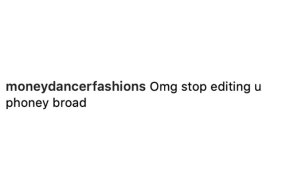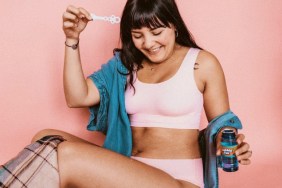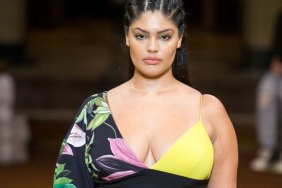The body acceptance movement has officially made it to Capitol Hill. In February, online retailer ModCloth reintroduced the Truth in Advertising Act to the Federal Trade Commission. The Act asks that the FTC regulate material image altering and call out businesses that are overzealous in their Photoshop use. Originally proposed in 2014, the bill’s been on the back burner for some time.
ModCloth, known for its body-inclusive designs and retro aesthetic, was the first and only label to sign the “Heroes Pledge for Advertisers” back in 2014, promising to not digitally alter the bodies of the models on its website and advertisements. In light of the plus-size industry’s many triumphs this past year and the growing momentum of the anti-digital alteration movement, the brand’s founder Susan Gregg Koger has revived her anti-photoshopping crusade. “It’s really timely, and it’s a bigger global conversation right now,” she told Refinery29.
From a business standpoint, doing away with ad alteration makes a lot of sense. The plus-size industry represents a $20.4 billion dollar market, according to the NPD Group. American Eagle’s loungewear and lingerie offshoot, Aerie, reported a soaring, double-digit increase in sales following the launch of its #AerieReal campaign, marked by its ban on airbrushed images. Apparently, honest marketing works. (Who’dve thunk it?)
“As a culture, we’re choosing which media we consume,” Koger stated in another interview. “It’s not all controlled from the top down like it used to be. We want to see true beauty. We want to see reality.” On the surface, unrealistic fashion ads aren’t as pernicious as, say, cigarette commercials targeted towards kids. However, many studies expound the emotional, mental and physical health issues linked to exposure to altered images. Research indicates that 78 percent of girls under 17 are unhappy with their bodies (and they haven’t had to deal with their metabolisms crapping out on them yet).
To raise awareness for the act, last Thursday Koger hosted an event at the Rayburn House Office Building in the capital. ModCloth supporters and government officials who initially sponsored the bipartisan bill — including Rep. Ileana Ros-Lehtinen (R-Fla.) and Rep. Lois Capps (D-Calif.) — gathered to discuss the road to ratification.
How can we bystanders help? By putting pen to paper. On Friday, ModCloth introduced a new letter-writing initiative. “We’re partnering with I Am That Girl and The Representation Project to start a letter-writing campaign to encourage our communities to get out and do something,” Koger said. “We’ve gotten a tremendous outpouring of feedback already.” Share your own journey towards body acceptance with Congress here. The campaign already has nearly 3,000 supporters but needs 7,000 more to reach its goal.
Koger’s aware that the bill won’t be easy to pass, or even get brought to the bargaining table, but remains optimistic. “If anything, it’s going to take a lot of voices. As a non-politician in this world, that’s how I believe the system works,” Koger said. “I think it will, and this fits along with lots of changes in how we consume media, and see true diversity. It’ll hopefully allow men and women, as they’re consuming advertising, to not feel like they’re lacking. That they’re not enough.”
The bill’s lead sponsor, Rep. Ileana Ros-Lehtinen, says, “Imagine what could be accomplished if young Americans were free to focus their attention on improving the world around them rather than focusing hopelessly inward to change themselves on the basis of false and unattainable physical standards.” What indeed.
[ via Mic ]








